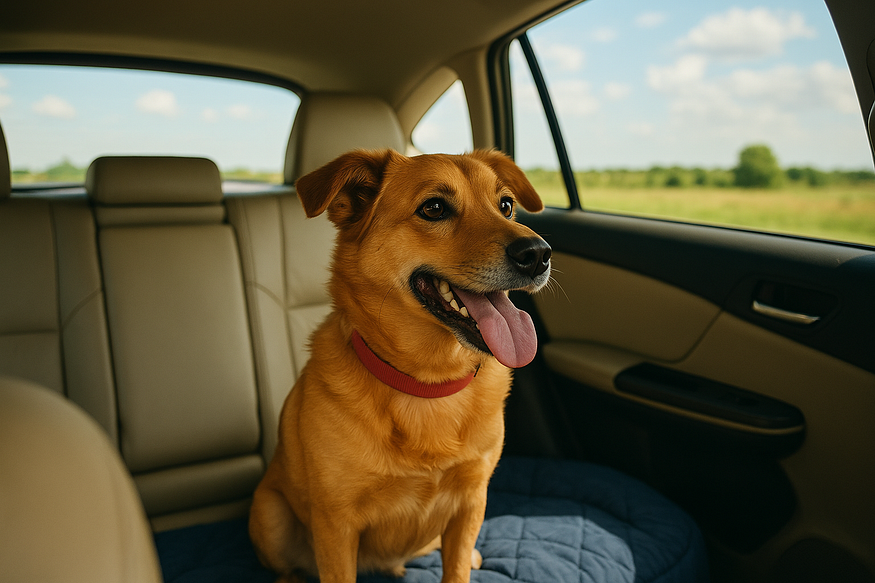Travelling with pets has become a popular choice for families who want to bring their furry companions along for the adventure. Road trips, in particular, offer flexibility, comfort, and the chance to make lasting memories. But to ensure the journey is safe and enjoyable, it’s important to plan ahead. This guide covers everything you need to know about taking dogs on long car rides, what to pack, and how to keep your pet happy on the road.
If you’d like more personalized advice or support, the team at Pure In-Home Pet Sitting is always here to guide you.

1. Preparing Your Dog for a Long Car Ride
Dogs need to adjust gradually before embarking on extended trips. Start with short drives to help them acclimate.
-
Vet Check-Up: Ensure vaccinations are current and ask about travel-related health concerns.
-
ID Tags & Microchip: Essential for safety if your dog gets separated during travel.
-
Practice Rides: Build comfort by increasing ride duration over time.
2. What to Pack for Dogs on Road Trips
Packing the right essentials will keep your pet comfortable and stress-free:
-
Dog food, water, and collapsible bowls
-
Leash, harness, and waste bags
-
Secure travel crate or seat-belt harness
-
Favorite blanket or toy for comfort
-
First-aid kit and prescribed medications
3. Safety During a Dog Long Car Ride
Pet safety is non-negotiable.
-
Use Restraints: Secure your dog with a harness or crate to prevent injuries.
-
Never Leave Dogs Alone in Cars: Temperatures can rise dangerously fast.
-
Back Seat Travel: Dogs should remain in the back seat to avoid airbag injuries.
4. What to Give Dogs for Car Rides
A common question is what to give dogs for car rides to prevent stress or motion sickness:
-
Light meals a few hours before departure
-
Fresh water available throughout the trip
-
Vet-approved remedies such as calming chews, sprays, or anti-nausea medication
Always consult your veterinarian before deciding what to give dogs for long car rides.
5. Planning the Trip
Good planning makes road trips smoother for both owners and pets.
-
Stop every 2–3 hours for bathroom breaks, water, and exercise
-
Choose pet-friendly stops, parks, and accommodations along the route
-
Stick to regular feeding and walking routines for comfort
6. Puppies and Travel
When can puppies travel by car? Puppies can usually take short car rides once they are 8–12 weeks old and have received their first vaccinations. Longer road trips should wait until they are fully vaccinated and comfortable in the car.
7. Overnight Stays with Dogs
If your road trip involves an overnight stop:
-
Book pet-friendly hotels or rentals in advance
-
Keep your dog’s feeding and exercise routine consistent
-
Bring bedding or familiar items to ease stress in new environments
Conclusion
Road trips with dogs can be a rewarding experience when planned carefully. Safety, comfort, and preparation are the keys to making your pet’s journey as enjoyable as yours. From packing the right gear to knowing what to give a dog for a long road trip, every detail matters in ensuring a smooth adventure.
Remember, a successful trip is not just about reaching your destination—it’s about making the entire journey enjoyable for your four-legged companion. With proper planning, dogs on road trips can adapt well, creating unforgettable moments for both pet and owner.
For more expert guidance or reliable in-home pet care while you travel, visit Pure In-Home Pet Sitting. Our team is dedicated to helping pets feel secure, loved, and well cared for—whether on the road or at home.
Comments
Post a Comment